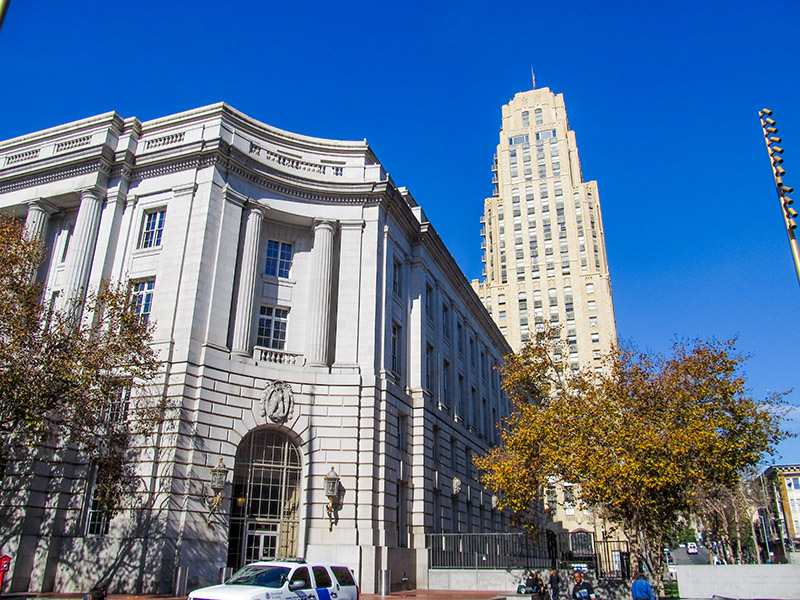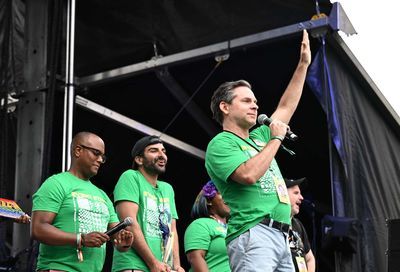Transgender prisoner sues Virginia Department of Corrections over denial of surgery
Jason Yoakam claims denial of treatment for his gender dysphoria is discriminatory and violates his Eighth Amendment rights.

An incarcerated transgender man has filed a lawsuit against the Virginia Department of Corrections for discriminating against him by denying him surgery and other treatment for gender dysphoria.
Jason Yoakam, who has been incarcerated at the Fluvanna Correctional Center for Women in Troy, Virginia, since 2004, was diagnosed with gender dysphoria in 2017, but has repeatedly been denied gender-affirming medical care, including mental health services and gender confirmation surgery. The Department of Corrections also denied Yoakam reasonable accommodations in the form of medical providers who are qualified and well-trained in dealing with patients with gender dysphoria, as well as an insistence that those providers refer to him by his preferred pronouns.
Yoakam was issued a chest binder after his diagnosis, but due to his gender dysphoria and discomfort with his own body, keeps it on throughout all hours of the day, except when showering. The binder is so tight it sometimes cuts into his skin and makes him bleed, and frequent use of the binder has led him to develop scars, rashes, acne, and even infections from untreated cuts.
According to the complaint, Yoakam’s dysphoria has worsened over the years, especially with regard to his chest. He reports having trouble sleeping, panic attacks, and shortness of breath, as well as a heightened alertness, elevated blood pressure, and erratic breathing, among other symptoms, because of his dysphoria. The situation has become so bad that Yoakam has actually stopped eating before taking a shower because the sight of his naked body makes him physically ill to the point of vomiting, and has thoughts of removing his breasts.
Enlisting the help of the LGBTQ legal advocacy organization Lambda Legal and the law firm Robins Kaplan LLP, Yoakam has sued the Virginia Department of Corrections and a number of prison officials and on-site medical providers for denying him affirming care.
In his complaint, filed in U.S. District Court for the Western District of Virginia, Yoakam and his lawyers argue that the denial of care violates his Eighth Amendment right to be free from “cruel and unusual punishment,” as well as his right to equal protection under the Fourteenth Amendment.
Yoakam also claims violation of his rights under the Americans with Disabilities Act; Section 504 of the Rehabilitation Act, which forbids organizations and employers from denying benefits and services to people with disabilities; and Section 1557 of the Affordable Care Act, which prohibits discrimination in federally-funded health care facilities.
“Defendants knew that denying Mr. Yoakam chest surgery placed him at a substantial risk of serious harm including depression, anxiety, mental impairment, physical self-harm, and suicide, and future harm as his condition worsened,” the complaint reads.
See also: Supreme Court refuses to hear Texas transgender inmate’s request for gender confirmation surgery
The lawsuit asks the court to declare the Virginia Department of Corrections’ refusal to provide Yoakam with surgery unconstitutional, order the department and its agents to provide Yoakam medically necessary care, including chest surgery, as well as reasonable accommodations for his disability, and order the department to pay any legal costs incurred by Yoakam in brining the lawsuit.
“The only thing I am asking is to be treated fairly and have access to the same standard of healthcare that other incarcerated people receive,” Yoakam said in a statement. “It has been traumatizing, isolating, and stigmatizing to be denied health care services to treat the gender dysphoria that VDOC’s own providers have diagnosed.”
Gender confirmation surgery may sometimes be recommended for people suffering from gender dysphoria, depending on the individual needs of the patient, according to the World Professional Association for Transgender Health, considered by many to be the top expert on standards of care for transgender patients. Most major medical organizations, including the American Medical Association, American Psychological Association, American Psychiatric Association and Endocrine Society also recognize gender dysphoria as a serious medical condition requiring treatment, the complaint notes.
“We allege and look forward to prosecuting our claims that this kind of discriminatory treatment is unconstitutional, not only in the case of Mr. Yoakam, but for countless other transgender inmates who are facing similar pain and anguish by being denied basic care and accommodations,” Kellie Lerner, a partner with Robins Kaplan law firm, said in a statement.
See also: Federal court orders Illinois prisons to overhaul how they deal with transgender inmates
In 2018, Lambda Legal and Robins Kaplan secured a pro bono victory on behalf of Jessica Hicklin, an incarcerated transgender woman, after she sued the Missouri Department of Corrections for denying her, and other transgender women, gender-affirming care. In that case, a federal judge found that the Missouri Department of Corrections’ “freeze-frame” policy — under which a trans person may only receive treatment for gender dysphoria if they were receiving such treatment prior to their incarceration — was unconstitutional, violating Hicklin’s Eighth Amendment rights.
Similarly, in 2020, Adree Edmo, a transgender female prisoner, sued the Idaho Department of Correction for denying her gender-confirmation surgery, and was ultimately allowed to receive it after the Supreme Court declined to take up an appeal of that ruling.
But that same year, the Atlanta-based 11th U.S. Circuit Court of Appeals overturned a lower court’s ruling in favor of a transgender inmate who sued Florida state officials over denial of hormone therapy. That decision is currently being appealed.
Richard Saenz, a senior attorney and Criminal Justice and Police Misconduct strategist at Lambda Legal, argues that Yoakam has a right to access medically necessary care.
“Mr. Yoakam is not seeking special treatment, just access to medically necessary health care and reasonable accommodations for his gender dysphoria,” Saenz said in a statement. “Every incarcerated person has a right to basic health care based on their medical needs — and should not face discrimination because of their sex. We hope that the Court affirms that denial of this safe and medically effective treatment for transgender men like Mr. Yoakam is a clear violation of their constitutional and statutory rights.”
See also:
Texas employers issue letter urging lawmakers not to pass anti-LGBTQ bills
Tennessee school calls police on Black student who defended trans classmate from bullies
Support Metro Weekly’s Journalism
These are challenging times for news organizations. And yet it’s crucial we stay active and provide vital resources and information to both our local readers and the world. So won’t you please take a moment and consider supporting Metro Weekly with a membership? For as little as $5 a month, you can help ensure Metro Weekly magazine and MetroWeekly.com remain free, viable resources as we provide the best, most diverse, culturally-resonant LGBTQ coverage in both the D.C. region and around the world. Memberships come with exclusive perks and discounts, your own personal digital delivery of each week’s magazine (and an archive), access to our Member's Lounge when it launches this fall, and exclusive members-only items like Metro Weekly Membership Mugs and Tote Bags! Check out all our membership levels here and please join us today!



























You must be logged in to post a comment.